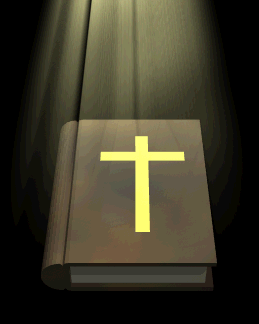 |
| Moral Law |
God gave man Ten Commandments. Every one of them is vital, in all ages. For only by observing them can man live a full life each week; maintain a happy marriage; and function well in his home, his job, and even in the world internationally. God Himself is the Root of the Moral Law, and perfectly reflects it. Salvation was never by the works of the Law. For even before the fall, man was to keep it out of gratitude for God's great grace. Unfallen man kept the whole Decalogue. The Sabbath, Marriage, the Forbidden Fruit, and the Tree of Life all reveal it. When man broke God's Law, he degenerated more and more—from the Fall to the Flood. The Patriarchs kept it, and the Prophets called man back to keep it. So, too, should we keep the law of Moses. Law of Moses
Christ never broke it. He said He had not come to destroy but to finish building the Law, and that not one jot or tittle of it would ever fail until heaven and earth themselves pass away. (Matthew 5:17–18) Also subsequently, all His Apostles taught it. So, too, did the Early Church Fathers, King Alfred, Luther, Calvin, and even the great Jurist Sir William Blackstone. It is the very basis of the United States of America, and also of every other Common Law nation in the world. True Christians Love to Keep God's Law. They shall always do so in Heaven.
Alfred is perhaps best of all remembered for his famous Law Code. According to the celebrated former British Statesman and Historian Sir Winston Churchill,2 the roots of King Alfred's Book of Laws or Dooms (alias his "Deemings") came forth from the (as then already long-established) laws of Kent, Mercia and Wessex. All these attempted to blend the Mosaic Code with the Christian principles of Celto-Brythonic Law and old Germanic customs. Churchill adds that the laws of Alfred, continually amplified by his successors, grew into that body of Customary Law which was administered [as the 'Common Law'] by the Shire and the Hundred Courts. Cf. Exodus 18:21f. That, under the name of the 'Laws of St. Edward' [the 'Confessor'] — as the A.D. 1042f last Anglo-Saxon Christian King of England — the Norman kings undertook to respect, after their 1066f invasion and conquest of England and hegemony over Britain. Out of that, with much dexterity by feudal lawyers, the Common Law emerged (which was re-confirmed by Magna Carta in 1215).
Introductory remarks about King Alfred's Law Code However, Alfred's most important work was certainly his Law Code. It is preceded by a long introduction.12 This contains translations not only of the Ten Commandments, but also of many other passages from the book of Exodus.13 It is followed by an excerpt from Christ's Sermon on the Mount14 and by a brief account of apostolic history (with quotations from the apostolic book of Acts).15 There, Alfred stresses the "jots and tittles" alias the minutiae of God's Law and His Prophets (Matthew 5:17f); the "Golden Rule" (Matthew 7:12); and the God-inspired decision of the First General Assembly of the Christian Church — in order to teach God's Law and His Prophets (Amos 9:11f) as well as His Gospel also in the congregations of Christ (Acts 15:15-29 & 16:4f). Then, King Alfred goes on to trace the growth of Church Law — as laid down by various Ecclesiastical Councils, both Ecumenical and English.16 The concluding words17 of his introduction then state that compensations for misdeeds on the part of men were ordained at many such Councils — and written in their records, with varying provisions. Thus Alfred first sets out the Ten Commandments — verbatim. Exodus 20:1-17.
Biblical law from Moses Biblical Law
Read the rest of Common Law: Roots and Fruits, by Dr. F. N. Lee.
Thou Shalt Not
Thou shalt not kill. Thou shalt not commit adultery. Thou shalt not bear false witness.
| Jesus Saves Ministry 1271 Eastland Rd. Sparta, TN 38583 Telephone: 256-523-6425 Email:  |
Dr. Francis Nigel Lee is a man deeply devoted to God. His extensive research and study demonstrates the truth found in Ecclesiastes 12:13, that the fear of God and His Holy Law is what man is all about. Our society, and indeed our civilization, would greatly benefit by a better understanding of the intricate design of God for His creation. Sir William Blackstone in his Commentaries on the Laws of England said it most explicitly, when he stated: Man considered as a creature, must necessarily be subject to the laws of his Creator, for he is entirely a dependent being. I am happy to commend to your reading Dr. Lees work God's Ten Commandments: Yesterday, Today, Forever. Roy Moore Former Chief Justice, Alabama Supreme Court; President, Foundation for Moral Law, Inc.
Purchase the book by Dr. Lee: God's Ten Commandments - Yesterday, Today, Forever by Dr. Francis Nigel Lee.
The Love of God and of neighbor is the summary of the law and prophets.